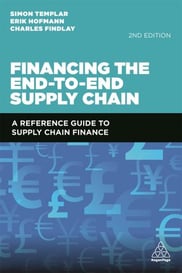With the world’s supply chains impacted massively by the pandemic, it’s critical to understand your suppliers’ financial stress and to integrate this into your overall supplier management approach. Could you become their ‘customer of choice’ by helping alleviate their cash challenges?
“Over the last decade, a virtual who’s who of industry leaders have generated billions of dollars in operating cash flow by implemented Supply Chain Finance (SCF)...AT&T, Lowe’s, P&G, Unilever, Nestle, Honeywell, Volvo, Caterpillar, Whirlpool, Electrolux, DuPont.” (Kramer, 2017)
At its most basic level, a buyer and the supplier may want different payment terms from each other – the buyer may want to spread the cost over time; the seller may want rapid payment, or even pre-payment, to cover immediate costs.
SCF is accessing finance to cover this Working Capital gap from customers or suppliers, rather than directly from banks or via financial intermediaries or markets. SCF is not a wholly new concept; it is more the coming together of a number of traditional financing approaches, the increasing use of electronic exchange of data between organizations and the emergence of alternative sources of finance.
SCF includes all approaches that change or modify the standard buyer–supplier terms of payment, whatever these typically happen to be for the industry, commodity, country or legal environment. SCF is more than Reverse Factoring (which is how some define SCF), it can include purchase order, invoice, inventory or any other supply chain asset backed funding.
Live webinar: Lessons from a crisis: Gaps in supplier management strategy and technology
Find out more
Supply chain strategy – short term vs longer term
"The real competition is between supply chains, not companies." (Martin Christopher)
Longer term, buyers would like the suppliers to consider their company as the supplier’s ‘best’ customer and so deliver way beyond the contracted levels of service. For suppliers to classify a buyer as one deserving extra efforts, their experience on how and when they are paid is one critical component. At the other end of the scale, delay and uncertainty over when a supplier will receive its cash can lead to it experiencing extra, sometimes punitive, financing costs, delayed deliveries and ultimately to bankruptcy.
Risk
The link between SCF and corporate risk is particularly relevant and notable in economic downturns or company distress. For example, Carillion:
“The company’s liabilities to banks related to overdrafts and loans stood at £148mn on its 2016 balance sheet, whereas there was in fact a possible further £498mn owed to banks under the reverse factoring scheme, Moody’s said.” (GTR, 2020)
But SCF can also reduce overall business risk by increasing options for funding and financing available through the Supply Chain. Unlike bank financing of a single party in the supply chain, SCF implies understanding and reliance on the stability of the chain. Furthermore, the integration fosters information quality and information sharing among participants of, for instance, their financial performance history and payment behaviour.
Supply chain information, data and technology
Many countries have regulations requiring reporting of performance of supplier payments. Do you know if your suppliers pay their suppliers within the regulations, within best practice? It’s not just a measure of an efficient supply chain; it’s part of sustainable, responsible and ethical supply chain management. If your suppliers are not paying their suppliers on time, are your supply risks increased? Is your brand at risk?
Reputation
“... we have shared some of the UK’s biggest names for poor payment practices, resulting in government intervention, extensive media coverage and some businesses reconsidering changing the way they do business.” (The Forum of Private Business, 2020)
As enterprises alter payment terms for their suppliers, maybe to improve their Working Capital position and enhance their financial performance, this has often drawn widespread negative reaction from the media, impacting adversely on perceptions by stakeholders (e.g. investors, customers, partners and analysts) which has implications for organisational reputation, brand and shareholder value. Sounds familiar? There are obvious links to issue of modern slavery, child labour, and unsafe working practices. All reasons for an integrated strategy to the supply chain.
SCF is an increasing part of business, business financing and business risk and should be part of your integrated approach to supplier management.
 |
Article based on “Financing the end to end supply chain, 2nd edition. A reference guide to supply chain finance (SCF)” Simon Templar, Erik Hofmann, Charles Findlay Published: 13th August 2020 https://www.koganpage.com/product/financing-the-end-to-end-supply-chain-9781789663488 |
For further information on how we can help your organisation reinvent its supplier relationships for a new era, please contact us here or at enquiries@stateofflux.co.uk.



